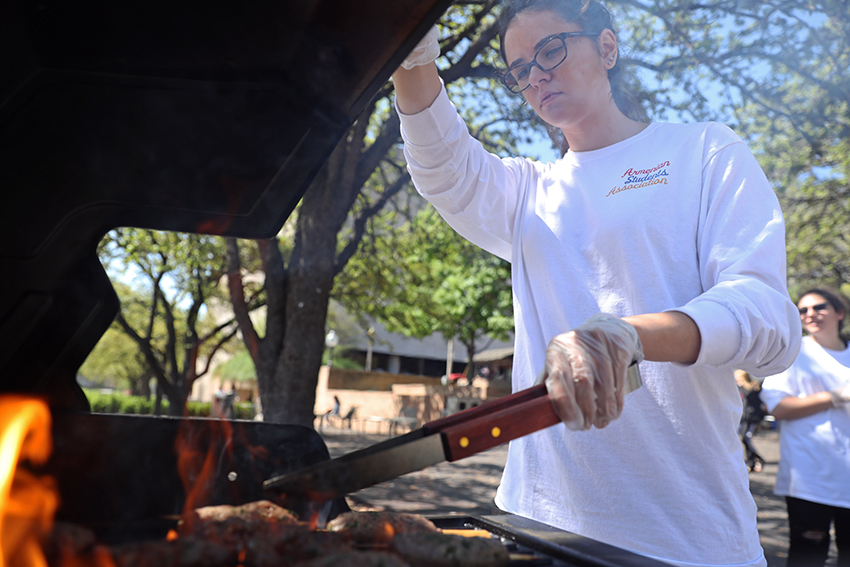The smell of baklava and grilled kebabs filled the air at the second Armenian Students Association’s semesterly cookout, promoting the organization’s effort to reestablish its presence on campus.
“Food is how Armenians establish hospitality,” ASA president Joanna Assadourian said. “When Armenians come over to an Armenian household, you’re greeted with food immediately. It’s a sign of welcoming and hospitality. So I feel like a lot of us as Armenians have a nostalgia or a very deep association with food as the gateway to building friendships and communicating with the community.”
Biology sophomore Assadourian said the ASA, originally named the Armenian Cultural Association last semester, was previously more of a social group than an active student organization. Assadourian said the new executive board renamed the group to tie themselves to the nationwide ASA network of organizations and decided to establish a greater social media connection and campus presence with events like the cookout.
“The people who were the heads of the organization last year graduated, and so basically the organization fell into our hands,” Assadourian said. “It was whether or not we were going to elevate the organization to another level. Most of us come from families that are very proud of their Armenian heritage, so for us it is something we’re really passionate about.”
Once social media and events were established, Assadourian said 18-20 more Armenian students started to find and join the group within the past year.
Biomedical engineering freshman Lily Grigorian said finding ASA last semester helped her better transition to UT after coming from a strong Armenian community back home.
“It was kind of a culture shock coming to UT to be honest,” Grigorian said. “(ASA) really just made me feel like, ‘Okay, I have my home here, I have my people, it’s all good.’”
Noah Rodriguez, an English freshman with some Armenian heritage, said he was unaware of ASA’s presence on campus, but said he hopes their activity promotes awareness of Armenian culture and struggles, such as the legacy of the Armenian genocide, which took place in the early 1900s.
“There’s a lot of benefit to having Armenian students in an Armenian student organization to help recognize the external and internal struggle of Armenians,” Rodriguez said. “It’ll give a lot more of an insight into Armenian people and Armenian culture, but also hopefully could help recognize the apartheid with Armenian people.”




















